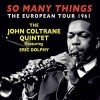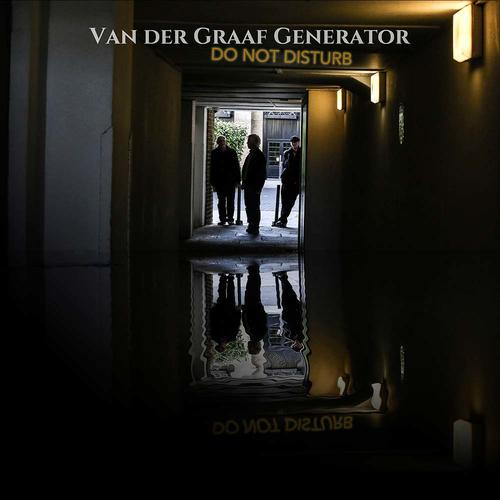 John Coltrane then. I’ve not really listened to a great deal of ‘trane. So it’s probably pretty stupid to review a 4-CD box of stuff that’s likely for the jazz collectors market, right? Except, y’know, jazz is a thing that exists in the cultural memory, so if it’s just written by and for folk who are already in, it kind of stops being a live culture and starts being a museum piece. This isn’t a review of museum music, for my money.
John Coltrane then. I’ve not really listened to a great deal of ‘trane. So it’s probably pretty stupid to review a 4-CD box of stuff that’s likely for the jazz collectors market, right? Except, y’know, jazz is a thing that exists in the cultural memory, so if it’s just written by and for folk who are already in, it kind of stops being a live culture and starts being a museum piece. This isn’t a review of museum music, for my money.
There’s another point to be made — we’re in a time when black folk are getting royally shafted, all over the world, including in developed countries that feign liberalism and “healthy approaches to diversity”. Including in cities like Baltimore, where the latest casualty of police racism is not the first this year, this month, this week… The UK has had riots over the police shooting of a young black man, which is by no means an isolated incident of police oppression of black folk.
Jazz has a cultural attaché of intellectualism, sharpness, the kind of music that grown-ups listen to and it’s probably arguable that, in the popular conception at least, it’s the last time black men weren’t broadly rendered as animals. Except, y’know, the sort of early impressions of jazz that found their way into Adorno and didn’t really lose the adjectives “depraved” or “sordid” until there weren’t many young-ish black folk making it any more. Lee Perry is a mad genius, Prince is a monster of narcissism, Dre‘s a thug, Grime’s for hoodlums… veneration of intelligence in music is broadly accepted, but smart black folk need to be well dead to get any credit from ungritted teeth. What’s that got to do with John Coltrane? Possibly nowt, it just seems apropos not to miss an opportunity to point out that it’s rough as fuck for a huge number of people who have the misfortune of not being white. John Coltrane was one such person who was an entirely outstanding arranger, melodist, bandleader, harmonic thinker, improviser, lyrical player…There’s a trick that comes back again and again. It’s a variation on a trick that comes from the old world of jazz (even in ‘trane’s time), where the soloist does a little bit of work around the head. Not too much — you want to keep the lead melody intact — but you throw a few accidentals over that melody. ‘Trane’s all over it, except he’s also got this pedal trick. It’s probably strictly an inverted pedal point because pedals tend to be tonic/bass register, but anyway — a pedal is where you hit a note, then another, then the first, then another; it’s using that note as a pivot around which the melody starts forming. ‘Trane uses them quite a bit, with accidentals become sub-melodies; quite a few times the pedal point itself goes up or down in its own melody. While saxes struggle with polyphony, the pedal work is a means of creating multiple lines at once. It’s breathtaking.
But let’s be clear here — this is a pretty exhausting listen. Four CDs, six sets, six versions of “My Favourite Things” at around 20 minutes each, all recorded within five days of each other. Mostly the recording quality is sub-optimal. So while the opening CD has some truly blistering extemporisations, it’s tricky to tell Coltrane and Eric Dolphy‘s horns apart (except, possibly, Dolphy’s a bit lower in the mix). It isn’t until CD 3 (Denmark, 1961) that the bass becomes audible — at which point it becomes clear that they haven’t been floating well above a pulse only partially articulated by Elvin Jones and McCoy Tyner (drums/ piano) but that Reggie Workman (bass) is nailing it down in what can only be described as an obsessive fashion.There are moments — plenty of them — where the recording being a bit whack doesn’t matter too much: CD 4’s version of “Impressions” with Dolphy swimming in increasingly massive and weird circles, sitting quite carefully between regimented modality and unstable free harmony. CD1 — possibly the duffest recording quality — has some entirely excoriating work on it, cutting through the murk and hiss of poorly-recorded cymbals. Nevertheless, listening to it all in one sitting is gruelling, especially given that the versions of “Favourite Things” seem to be around 12 minutes of set pieces with eight minutes of improv.
And so in that I’m struggling to place this — it’s one that composition students and jazz heads will lap up — and I’m guessing those are the cats it’s aimed at; but I’m not sure I’d recommend as 4 CDs of listening for a long car journey. Well, I would, but I am somewhat masochist in that regard. It’s been a proper immersive listen for me and I definitely need to spend more time with John. But not yet, because it really is draining. That’s definitely unfair, because I guess most folk would listen to it slowly, over a week or two, let it sink in. I’ve spent a couple of months with it. But making decisions on it, getting all of the nooks and crannies mapped — it’s a bastard, this is a massively complex wash of inconsistently recorded amazing playing.IN CONCLUSION THEN I’m being fairly inconclusive. Pros: amazing playing, from everyone (presumably including the inaudible bassist on the first 2 CDs). Cons: gruelling, iffy recording. You should probably buy it though, you don’t have enough amazing playing in your collection and it’s literally got several versions of “Favourite Things” plus an entirely gorgeous version of “Everytime We Say Goodbye” and you love that, don’t you? Yeah, have at it, son.
-Kev Nickells-



